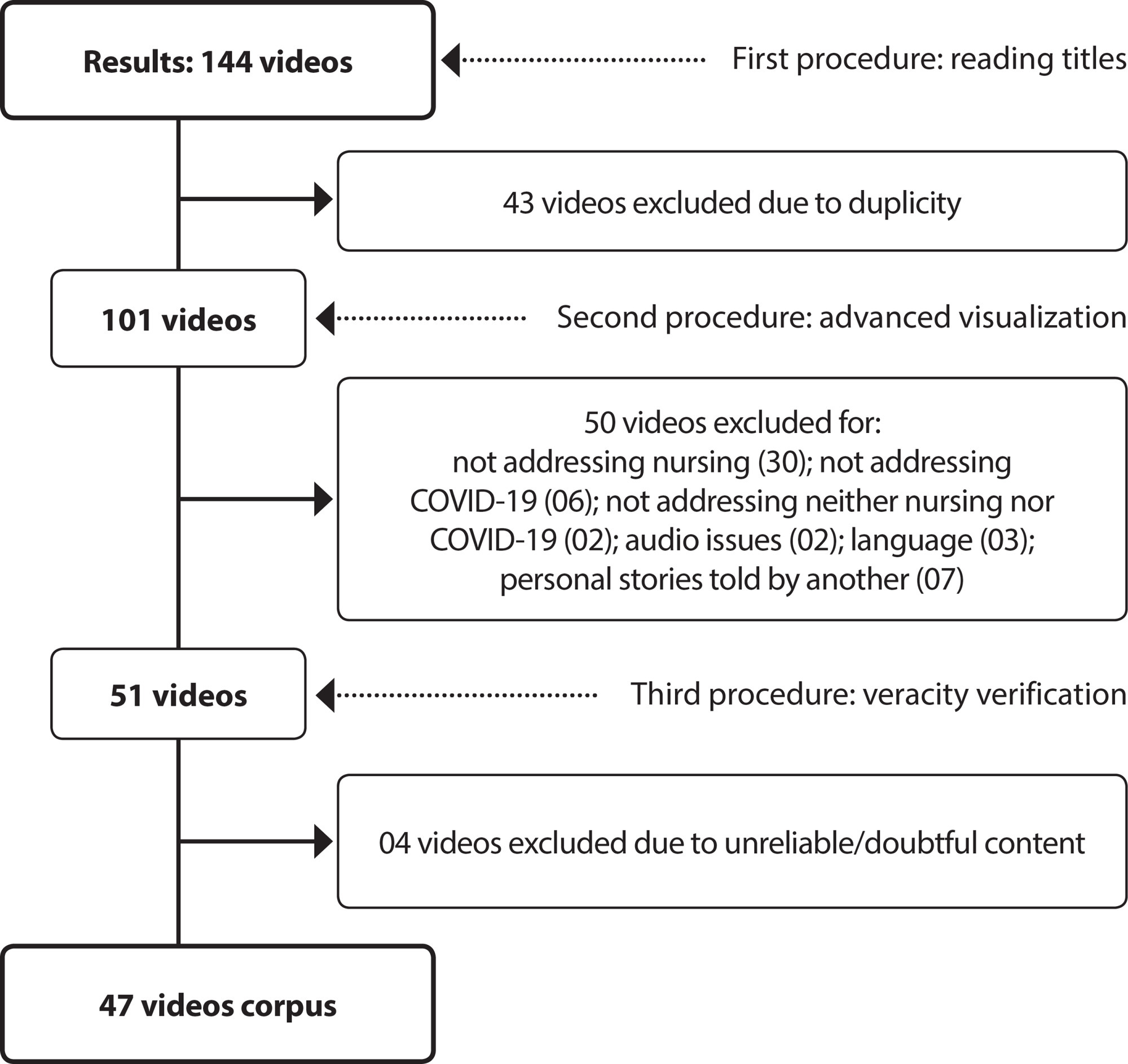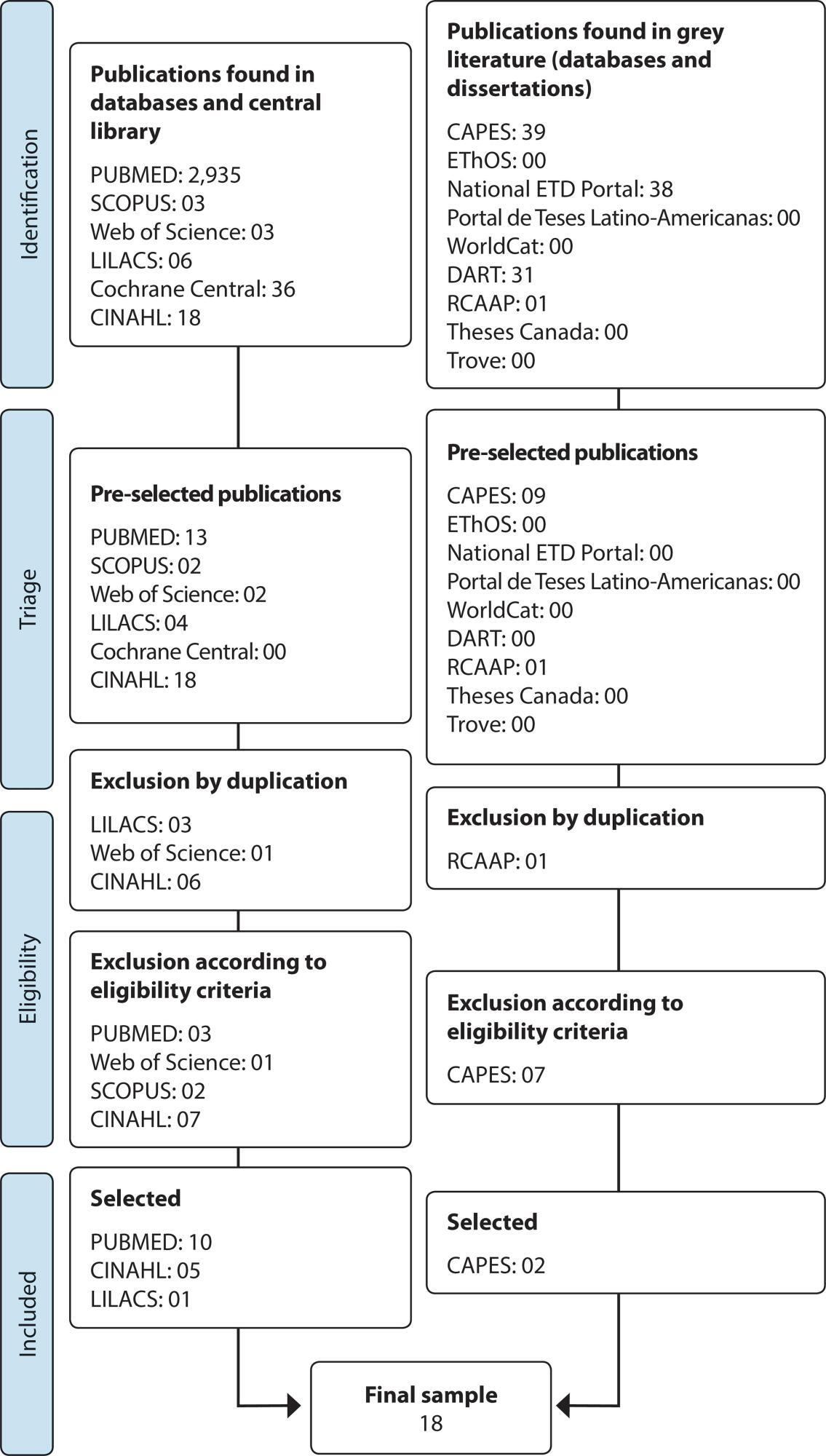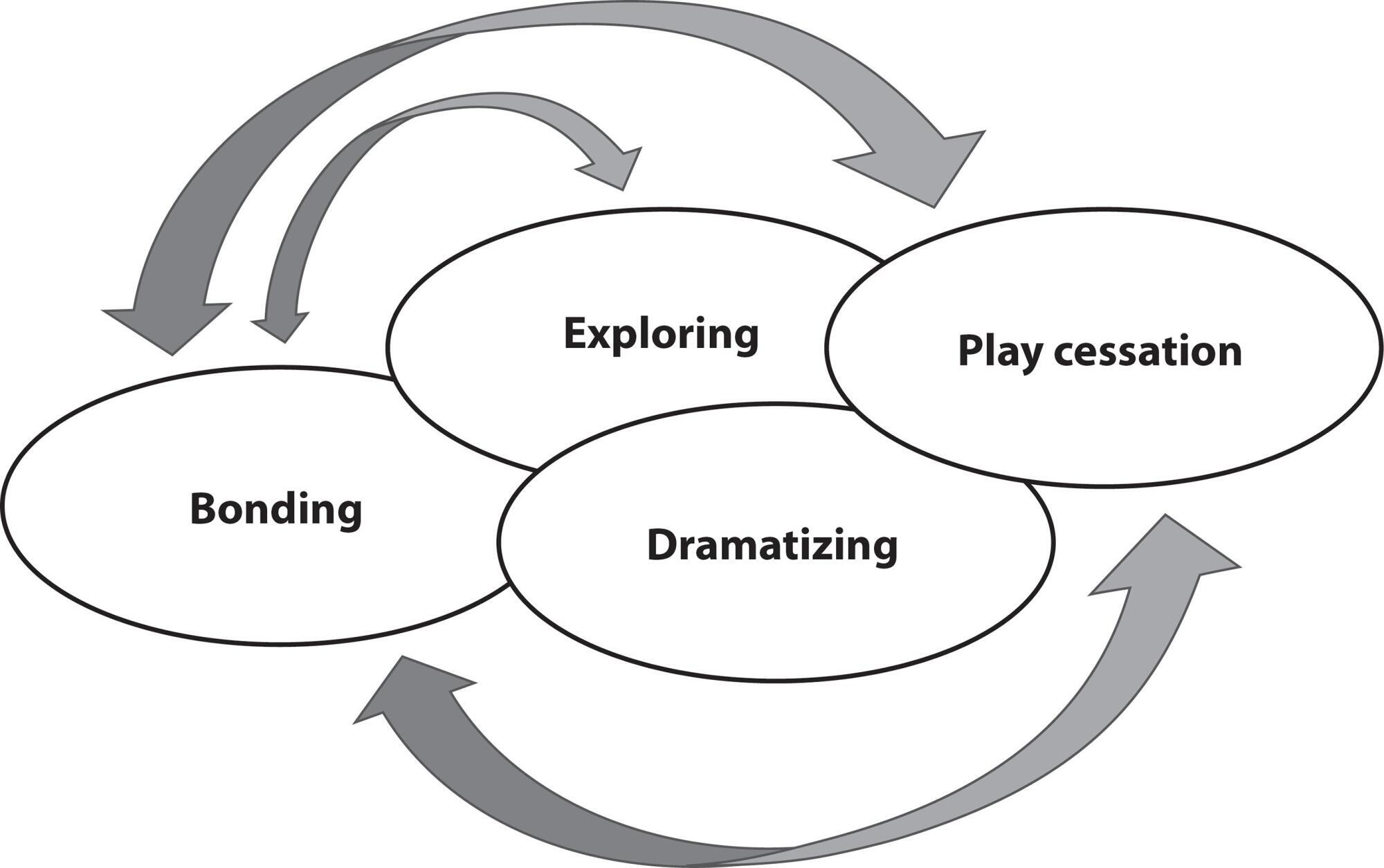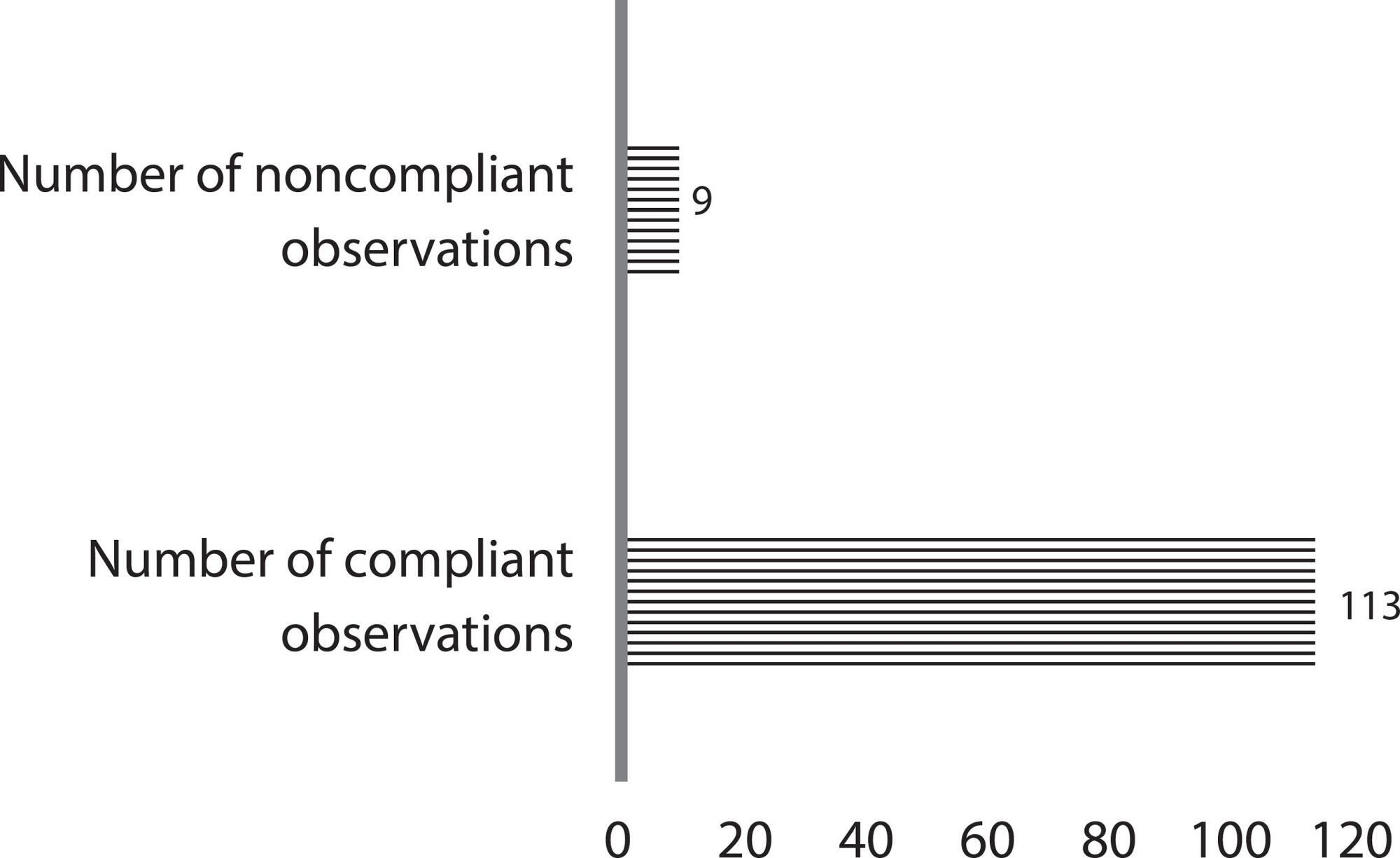-
RESEARCH
Avaliação do risco de úlceras por pressão em pacientes hospitalizados com HIV/Aids
Revista Brasileira de Enfermagem. 2016;69(1):96-101
01-01-2016
Abstract
RESEARCHAvaliação do risco de úlceras por pressão em pacientes hospitalizados com HIV/Aids
Revista Brasileira de Enfermagem. 2016;69(1):96-101
01-01-2016DOI 10.1590/0034-7167.2016690113i
Views0RESUMEN
Objetivo:
evaluar el riesgo de desarrollar úlceras por presión en pacientes hospitalizados con VIH/SIDA.
Método:
estudio cuantitativo descriptivo con 35 pacientes. Caracterización epidemiológica y clínica de los pacientes en un instrumento mediante la Escala de Braden. Las variables se realizaron en forma descriptiva simple, por números absolutos.
Resultados:
la incidencia de la PU observada en 2 pacientes, y las comorbilidades fueron neumocistosis pneumocisti carinii y tuberculosis pulmonar. Se reveló que la subescala de fricción y fuerza de deslizamiento obtuvo una puntuación más baja, seguido por actividad y la nutrición, la movilidad y la humedad. La percepción sensorial obtuvo la puntuación más alta. Dos pacientes fueron clasificados como de “alto riesgo” a 6 de “alto riesgo”, 3 para “bajo riesgo” y el otro “ningún riesgo”.
Conclusión:
la calificación de riesgo, mediante el uso de escalas proporciona información objetiva para la toma de decisione de enfermería a un modo específico.
Keywords:Cuidados de EnfermagemDoença CrônicaFatores de RiscoSíndrome da Imunodeficiência AdquiridaÚlcera por PressãoSee more -
RESEARCH
Children with special health needs and family: implications for Nursing
Revista Brasileira de Enfermagem. 2016;69(1):88-95
01-01-2016
Abstract
RESEARCHChildren with special health needs and family: implications for Nursing
Revista Brasileira de Enfermagem. 2016;69(1):88-95
01-01-2016DOI 10.1590/0034-7167.2016690112i
Views0See moreABSTRACT
Objective:
to understand the family experience of children and adolescents with myelomeningocele by the discovery of chronic illness and their daily life in the realization of needed care to these people.
Method:
qualitative study, developed from October 2013 to February 2014, with family, in a pediatric hospital in Fortaleza. Data were collected through interviews and checked by analysis thematic category.
Results:
it was found that the diagnosis after the birth of the child caused fear and anguish to the families in front of the unknown and the unexpected and that over the years they started to deal with many challenges conducting the daily care due to the disease sequelae.
Conclusion:
nursing plays an important role in the lives of families, children and adolescents, through emotional support, guidelines and care inserted in the health care network.
-
RESEARCH
Evaluation of the care program implementation to people with high blood pressure
Revista Brasileira de Enfermagem. 2016;69(1):79-87
01-01-2016
Abstract
RESEARCHEvaluation of the care program implementation to people with high blood pressure
Revista Brasileira de Enfermagem. 2016;69(1):79-87
01-01-2016DOI 10.1590/0034-7167.2016690111i
Views0See moreABSTRACT
Objective:
to evaluate the implementation of the care program for people with hypertension in Maringá-PR.
Method:
it is an evaluative research of cross-sectional design. Data were collected through structured interviews with 63 nurses between April and June 2013.
Results:
as missing or insufficient, there were: transportation for outside activities; work equipment; educational materials; training resources; inclusion of the family in the care plan; risk classification of individuals; determination of therapy from the risk classification and referral of the patient to medical and/or specialized tests.
Conclusion:
in addition to qualifying structure, there are: the need to identify people with hypertension as risk factors, perform risk stratification and systematic care planning, establishing an advanced clinical practice, such as support for self-care and management cases, accomplish with existing protocols and develop collective actions based on information systems.
-
RESEARCH
Evaluation of quality of life of visually impaired
Revista Brasileira de Enfermagem. 2016;69(1):72-78
01-01-2016
Abstract
RESEARCHEvaluation of quality of life of visually impaired
Revista Brasileira de Enfermagem. 2016;69(1):72-78
01-01-2016DOI 10.1590/0034-7167.2016690110i
Views0ABSTRACT
Objective:
to evaluate the quality of life of visually impaired using WHOQOL-100.
Method:
exploratory, descriptive, and quantitative study, performed between April and May 2013 with 20 visually impaired of the Blind Association of Ceará, through interviews.
Results:
the analysis showed that males predominated (80%), 41-55 years (40%), students (50%) and personal income than the minimum wage (70%). Participants were self-rated with good quality of life (68.75%). The facets with the highest rates were personal relationships (74.06%), sexual activity (66.88%) and spirituality/religion/personal beliefs (65%). With lower rates were financial (43.44%), physical environment: pollution/noise/traffic/climate (46.88%), physical security and protection (37.19%), transport (35.63%) and medication or treatment dependency (8.25%).
Conclusion:
these results reflect the importance of the nurse to perform health education actions promoting the empowerment, autonomy and guaranteed of access in society for this clientele.
Keywords:Education of Visually Impaired PersonsNursingNursing CareQuality of LifeVisually Impaired PersonsSee more
-
RESEARCH
Coping strategies for oncology nurses in high complexity
Revista Brasileira de Enfermagem. 2016;69(1):67-71
01-01-2016
Abstract
RESEARCHCoping strategies for oncology nurses in high complexity
Revista Brasileira de Enfermagem. 2016;69(1):67-71
01-01-2016DOI 10.1590/0034-7167.2016690109i
Views0See moreABSTRACT
Objective:
to identify the coping strategies of oncology services of nurses in highly complex hospital care before the person with cancer.
Method:
it is a qualitative research, with 18 nurses in inpatient oncology units and/or outpatient chemotherapy in two cities in southern Brazil, sampled by a snowball and carrying out semi-structured interviews. Data were submitted to thematic analysis.
Results:
three categories emerged that show strategies such as denial and resignation in care, for support in the health team and the plurality and multiplicity of perspectives on the care, including the patient and his family and the search for personal and professional improvement.
Conclusion:
coping strategies are expressed in the cultural understanding of what it means to have cancer or not and management of health institutions for nurses to work with satisfaction. The service in education is a major factor in the development of ethical competence.
-
RESEARCH
Implementation of fast tests for syphilis and HIV in prenatal care in Fortaleza – Ceará
Revista Brasileira de Enfermagem. 2016;69(1):62-66
01-01-2016
Abstract
RESEARCHImplementation of fast tests for syphilis and HIV in prenatal care in Fortaleza – Ceará
Revista Brasileira de Enfermagem. 2016;69(1):62-66
01-01-2016DOI 10.1590/0034-7167.2016690108i
Views0See moreABSTRACT
Objective:
to describe the implementation of the Fast Test (FT) of syphilis and HIV in prenatal care in primary healthcare units in Fortaleza, Ceará.
Method:
a descriptive study with a quantitative approach. There were training supervisions carried out in 24 units between May and August 2014, and the inclusion criterion was to have at least one trained professional.
Results:
the physical space, the availability, validity and the performance of FT in prenatal were analyzed. The data were presented in simple frequency tables. It was identified adequate space in 79.2% of the units, availability of FT in 62.5%, performing the tests in 37.5%, and of these, 55.6% doing these procedures in routine prenatal care.
Conclusion:
the primary units have difficulties in implementing FT in syphilis and HIV in the prenatal routine. This activity is seen as an effective strategy to reduce vertical transmission of these infections.
-
RESEARCH
Evaluating child care in the Family Health Strategy
Revista Brasileira de Enfermagem. 2016;69(1):54-61
01-01-2016
Abstract
RESEARCHEvaluating child care in the Family Health Strategy
Revista Brasileira de Enfermagem. 2016;69(1):54-61
01-01-2016DOI 10.1590/0034-7167.2016690107i
Views0See moreABSTRACT
Objective:
to evaluate the healthcare provided to children under two years old by the Family Health Strategy.
Method:
evaluative, quantitative, cross-sectional study that used the Primary Care Assessment Tool – Child Version for measuring the access, longitudinality, coordination, integrality, family orientation and community orientation.
Results:
a total of 586 adults responsible for children under two years old and linked to 33 health units in eleven municipalities of the state of Minas Gerais, Brazil, were interviewed. The evaluation was positive for the attributes longitudinality and coordination, and negative for access, integrality, Family orientation and community orientation.
Conclusion:
there are discrepancies between health needs of children and what is offered by the service; organizational barriers to access; absence of counter-reference; predominance of curative and long-standing and individual preventive practices; verticalization in organization of actions; and lack of good communication between professionals and users.
-
RESEARCH
Factors associated with inconsistent condom use among people living with HIV/Aids
Revista Brasileira de Enfermagem. 2016;69(1):47-53
01-01-2016
Abstract
RESEARCHFactors associated with inconsistent condom use among people living with HIV/Aids
Revista Brasileira de Enfermagem. 2016;69(1):47-53
01-01-2016DOI 10.1590/0034-7167.2016690106i
Views0See moreABSTRACT
Objective:
to analyze the prevalence and factors associated with inconsistent use of condoms among people living with HIV/ Aids (PLWHA).
Method:
it is a cross-sectional study with 228, with individual interviews conducted in 2011. A multivariate analysis was performed with a logistic regression model.
Results:
143 participants met the inclusion criteria, and the prevalence of inconsistent condom use was 28.7%. However, there was greater adherence among men (79.3%). In the multivariate analysis, the independent variable daily use of alcohol (OR=11.02; 95% CI 1.84, 65.92; p = 0.021) was associated with inconsistent condom use. The chance of men making consistent condom use was higher than women (OR = 0.36, 95% CI 0.15, 0.81; p = 0.015).
Conclusion:
the prevalence of inconsistent condom male use among PLWHA was low, however, evidenced greater compliance among men over women with a statistically significant difference and the daily use of alcohol was associated with inconsistent condom use.
-
Contents related to nursing professionals during the COVID-19 pandemic on the Youtube™ platform
Revista Brasileira de Enfermagem. 2021;74:e20200581
02-05-2021
Abstract
Contents related to nursing professionals during the COVID-19 pandemic on the Youtube™ platform
Revista Brasileira de Enfermagem. 2021;74:e20200581
02-05-2021DOI 10.1590/0034-7167-2020-0581
Views0See moreABSTRACT
Objective:
to characterize the content of Youtube™ videos related to nursing professionals during the COVID-19 pandemic.
Method:
a qualitative study that examined 47 videos on Youtube™ posted between 11/03 and 11/04 2020, which were subjected to thematic analysis.
Results:
four categories emerged: “the role of nurses in care production during the pandemic”, which addresses the management of services and individual care; “Overview of the pandemic from the perspective of nurses in different countries”, presenting experiences and encouraging physical distance; “Tributes and motivation to mobilize the category”, in addition to targeted tributes, calls for nurses to claim their rights; “Criticisms and demands to improve working conditions”, which highlights the insecurity of care provision settings.
Final considerations:
nursing work conditions in different countries, recognition of the importance of professionals during the pandemic, and claims of the category to improve working conditions were the main content found on Youtube™.

-
REVIEW
Prevention and control measures for neonatal COVID-19 infection: a scoping review
Revista Brasileira de Enfermagem. 2020;73:e20200467
07-13-2020
Abstract
REVIEWPrevention and control measures for neonatal COVID-19 infection: a scoping review
Revista Brasileira de Enfermagem. 2020;73:e20200467
07-13-2020DOI 10.1590/0034-7167-2020-0467
Views0See moreABSTRACT
Objective:
to identify with the literature the measures to prevent and control neonatal infection by COVID-19.
Methods:
a scope review carried out by searching for studies in databases and institutional health websites. The final sample was 25 articles.
Results:
among the main measures are the use of masks by suspected or infected people in contact with healthy newborns, hand hygiene before and after each care and feeding as well as the tools used for milking. It is indispensable to use personal protective equipment by health professionals in neonatology services to maintain a private room for infected newborns or to use physical barriers. Early diagnosis and timely case management is essential to reduce virus transmissibility.
Conclusions:
the research contributed to elucidate health and nursing actions in preventing and controlling neonatal infection by COVID-19.

-
REVIEW
Prevention and conduct against the Extravasation of antineoplastic chemotherapy: a scoping review
Revista Brasileira de Enfermagem. 2020;73(4):e20190008
06-17-2020
Abstract
REVIEWPrevention and conduct against the Extravasation of antineoplastic chemotherapy: a scoping review
Revista Brasileira de Enfermagem. 2020;73(4):e20190008
06-17-2020DOI 10.1590/0034-7167-2019-0008
Views0ABSTRACT
Objectives:
to identify and synthesize scientific evidence on prevention and management of extravasation of antineoplastic agents in adult patients by nurses.
Methods:
scoping review, according to Joanna Briggs Institute and PRISMA-ScR. Research was conducted in five electronic databases, Cochrane Library and eight catalogs of theses and dissertations. Data collection occurred from April to July 2018, with no time limit. The extracted data were analyzed and synthesized in a narrative way.
Results:
a total of 3,110 records were retrieved and 18 studies were kept for review. Most publications (66.6%) had a qualitative approach and addressed both aspects, i.e., prevention and management of extravasation of chemotherapy in adult patients.
Conclusions:
the implementation of protocols based on scientific evidence on prevention and management of extravasation of antineoplastic agents is paramount in order to provide patient safety and support to the nursing staff.
Keywords:Antineoplastic AgentsCombined ChemotherapyExtravasation of Therapeutic and Diagnostic MaterialsNursing CareOncologySee more
-
REFLECTION
Training and work process in Multiprofessional Residency in Health as innovative strategy
Revista Brasileira de Enfermagem. 2020;73(6):e20190635
09-07-2020
Abstract
REFLECTIONTraining and work process in Multiprofessional Residency in Health as innovative strategy
Revista Brasileira de Enfermagem. 2020;73(6):e20190635
09-07-2020DOI 10.1590/0034-7167-2019-0635
Views0ABSTRACT
Objectives: To
reflect about education in health and work process on three programs of multiprofessional residency in Florianópolis/SC.
Method:
Reflexive study about Multiprofessional Residency Health Programs of Florianópolis.
Results:
Multiprofessional Residency characterizes training health professionals through service education. Developing these professionals’ specialization with assignments that promote professional exercise and magnifies multiprofessional work at the same time, for excellency in unabridged healthcare.
Final Considerations:
Multiprofessional Residency Programs make interdisciplinary education, sharing knowledge between residents and other professionals stimulating development of innovation skills.
Keywords:Euducation, GraduateHealth PersonneInternship and ResidencyInterprofessional RelationsProfessional PracticeSee more -
ORIGINAL ARTICLE
Understanding the dramatic therapeutic play session: a contribution to pediatric nursing
Revista Brasileira de Enfermagem. 2020;73(4):e20180812
06-08-2020
Abstract
ORIGINAL ARTICLEUnderstanding the dramatic therapeutic play session: a contribution to pediatric nursing
Revista Brasileira de Enfermagem. 2020;73(4):e20180812
06-08-2020DOI 10.1590/0034-7167-2018-0812
Views0See moreABSTRACT
Objectives:
to understand how the dramatic therapeutic play session occurs within the care of hospitalized children.
Methods:
qualitative multiple case study, using theoretical references, such as symbolic interactionism and Vygotsky’s theory of symbolic play. Twenty play sessions performed with six children from 3 to 10 years old were analyzed, each corresponding to one case.
Results:
these sessions demonstrated that a dramatic therapeutic play session is a process of four interdependent and complementary steps: bonding, exploring, dramatizing, and play cessation. They also revealed the imaginary situations externalized by the child, the importance of the exploration step for which they manage the imaginary situation and catharsis, and how her higher psychological faculties are articulated during this process.
Final Considerations:
the results contribute to the understanding of the conduct and analysis of the dramatic therapeutic play session, reinforcing the importance of its use in pediatric nursing care practice.

-
ORIGINAL ARTICLE
Common mental disorders in nursing students of the professionalizing cycle
Revista Brasileira de Enfermagem. 2020;73(1):e20180154
02-10-2020
Abstract
ORIGINAL ARTICLECommon mental disorders in nursing students of the professionalizing cycle
Revista Brasileira de Enfermagem. 2020;73(1):e20180154
02-10-2020DOI 10.1590/0034-7167-2018-0154
Views0See moreABSTRACT
Objectives:
to verify the suspicion of common mental disorders in nursing students of the professionalizing cycle and the association with sociodemographic features.
Method:
cross-sectional study with a sample of 85 students from a public university in the state of Rio de Janeiro (RJ) who responded to the Self-Report Questionnaire-20 and sociodemographic questions.
Results:
the suspicion prevalence of common mental disorders (CMD) in the sample was 55.3% and it was identified the association with the consumption of alcohol. Of the most frequent SRQ-20 complaints, 95.3% reported “feeling nervous, tense or worried”, 72.9% “having difficulty making decisions”, 60% “sleeping poorly” and 37.6% “having lost interest by things “.
Conclusion:
high prevalence of CMD in the sample and the association with the consumption of alcohol requires preventive and therapeutic actions among the students that minimize the possibility of severe mental disorders related to the consumption of alcohol and other drugs.
Search
Search in:
Nuvem de Tags
Aged (144) Atenção Primária à Saúde (239) COVID-19 (104) Cuidados de Enfermagem (269) Educação em Enfermagem (151) Educação em Saúde (139) Enfermagem (930) Estudos de Validação (131) Health Education (144) Idoso (208) Mental Health (149) Nursing (987) Nursing Care (306) Patient Safety (151) Primary Health Care (284) Qualidade de Vida (104) Quality of Life (106) Saúde Mental (145) Segurança do Paciente (150) Validation Studies (108)




